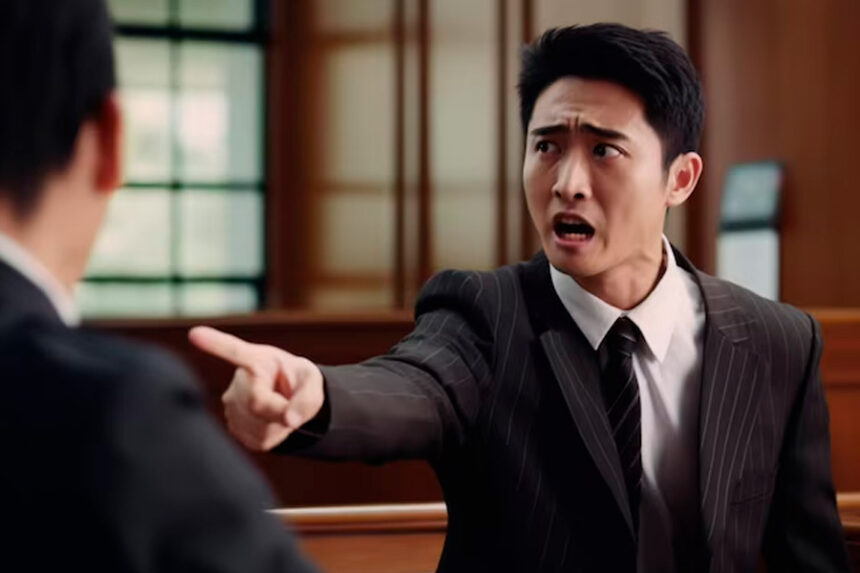The legal profession is often shrouded in misconceptions and outdated stereotypes. Most people carry preconceived notions about lawyers that are either incomplete or downright inaccurate. These misunderstandings can lead to misplaced expectations, unnecessary fear, or undervaluing the profound role that legal professionals play in society.
The truth is far more nuanced. The modern legal landscape is dynamic, multifaceted, and critical to both individual rights and societal progress. Unraveling what most people get wrong about lawyers not only brings clarity but also builds respect for the profession’s complexity.
Wrong Assumption: Lawyers Only Care About Money
One of the most pervasive myths most people believe about lawyers is that they are solely motivated by financial gain. While it’s true that law can be a lucrative career, this oversimplification ignores the deeply rooted ethical foundations and client-centered focus that many lawyers uphold.
Thousands of legal professionals dedicate their careers to public service, pro bono work, and advocacy for marginalized communities. These lawyers tirelessly work for social justice, often sacrificing high-paying opportunities to serve those who cannot afford legal representation. The belief that lawyers are universally greedy is an unjust stereotype that diminishes the valuable public service they provide.
Wrong Perception: All Lawyers Are Litigators
Another misconception most people have about lawyers is that all of them spend their days arguing cases in courtrooms. In reality, the vast majority of lawyers rarely, if ever, see the inside of a courtroom.
Many legal professionals specialize in advisory roles, contract drafting, regulatory compliance, intellectual property, mergers and acquisitions, and countless other areas that don’t involve litigation. Corporate lawyers, estate planners, and in-house counsels are often far removed from courtroom drama, focusing instead on preventing legal disputes before they arise. The dramatization of lawyers in movies and TV shows feeds this wrong narrative, skewing public perception.
Wrong Belief: Lawyers Are Dishonest or Manipulative
The notion that most people hold about lawyers being inherently deceptive is not only inaccurate but also fundamentally unfair. Legal practice is governed by strict codes of ethics and rigorous oversight. Breaching these ethical standards can result in severe consequences, including disbarment.
Lawyers are bound by fiduciary duties, which means they are legally obligated to act in their client’s best interests with honesty and integrity. Yes, some may exploit legal loopholes, but that is the exception, not the rule. Most attorneys prioritize justice, fairness, and transparent representation.
Wrong Idea: Lawyers Are Only for the Rich
There is a prevailing wrong assumption most people make about lawyers—that only the wealthy can afford quality legal services. This misconception has been gradually dismantled thanks to public defenders, legal aid societies, and community-based initiatives that provide affordable or even free legal assistance.
Access to legal support is expanding, with many lawyers offering sliding scale fees, payment plans, or participating in pro bono work. Additionally, small claims courts, mediation services, and online legal resources have made legal help more accessible to ordinary citizens. Lawyers are not exclusively for the elite; they serve people across all socioeconomic backgrounds.
Wrong Concept: Lawyers Are All About Winning at Any Cost
Movies and courtroom dramas often portray lawyers as aggressive, win-at-all-costs professionals, but this caricature is highly misleading. Ethical guidelines strictly prohibit the pursuit of victory through deceit, coercion, or misconduct.
In fact, many lawyers aim to reach equitable settlements that save time, money, and emotional stress for their clients. Conflict resolution and mediation are becoming increasingly popular, emphasizing collaborative solutions over adversarial battles. Most people overlook that lawyers often strive for fairness, not just a courtroom win.
Wrong Assumption: All Lawyers Have the Same Skills
Another thing most people get wrong about lawyers is assuming they are all equally skilled in every area of law. Law is as specialized as medicine, with distinct disciplines such as criminal defense, family law, tax law, environmental law, intellectual property, and immigration law.
Hiring the wrong type of lawyer for your specific legal need can be as detrimental as consulting a cardiologist for a skin condition. Specialized expertise matters, and choosing the right legal representative is crucial for a favorable outcome.
Wrong Thinking: Lawyers Will Always Draw Out a Case for Money
There’s a cynicism that some most people hold about lawyers—that they intentionally prolong cases to increase their fees. While time-based billing models exist, many lawyers now offer flat fees, contingency arrangements, or value-based pricing to mitigate this concern.
Lawyers often face pressure to resolve cases efficiently, especially in an era where client satisfaction drives business through referrals and online reviews. Drawing out cases without cause risks reputational damage and professional penalties. The vast majority of attorneys prioritize resolving matters expediently and ethically.
Wrong Belief: Lawyers Speak in Unnecessary Jargon
While legal language can certainly be complex, many most people misunderstand about lawyers is that they intentionally use jargon to confuse or intimidate clients. In reality, skilled lawyers take pride in simplifying complex legal terms to ensure clients understand their rights and options.
Clear communication is a hallmark of effective legal representation. Lawyers who obfuscate information risk losing client trust and are unlikely to retain clientele in today’s transparent, consumer-driven environment.
Wrong View: Lawyers Guarantee Outcomes
Another harmful assumption most people make about lawyers is that they can guarantee a win. The legal system is inherently unpredictable, influenced by judges, juries, procedural nuances, and evolving statutes.
Ethical lawyers explicitly clarify that no outcome is ever guaranteed. Promising success is not just misleading—it’s a violation of professional conduct. Legal advice focuses on probabilities, risks, and best strategies, not certainties.
Wrong Idea: Lawyers Are Always Stressed and Unhappy
Pop culture frequently depicts lawyers as perpetually stressed, cynical, and burned out. While law can be a demanding profession, this portrayal is not universally accurate.
Many lawyers find deep satisfaction in their work, especially when they are making meaningful impacts on their clients’ lives or contributing to social justice. Modern law firms are increasingly promoting work-life balance, mental health awareness, and flexible work arrangements, gradually changing the outdated narrative of the miserable attorney.
Wrong Notion: Lawyers Are Necessary Only for Big Problems
Most people erroneously think about lawyers only when serious trouble strikes—criminal charges, lawsuits, or divorce. In truth, lawyers play essential roles in everyday life: reviewing contracts, starting businesses, buying property, or drafting wills.
Preventive legal counsel can save significant costs and headaches down the line. Engaging a lawyer early can help avoid disputes, ensure compliance, and provide clarity in complex personal and professional matters.
Wrong Perspective: Lawyers Are Not Technologically Savvy
The perception that most people carry about lawyers being technologically outdated is no longer valid. Today’s legal professionals harness cutting-edge tools to streamline case management, improve client communication, and conduct legal research.
Virtual law offices, e-filing systems, AI-assisted document analysis, and video conferencing are all becoming standard. Tech-savvy lawyers now use digital platforms to offer services remotely, making legal support more accessible and efficient.
Wrong Idea: You Can Handle Legal Matters Without Lawyers
With the rise of DIY legal templates and online resources, most people assume about lawyers that their expertise is optional. While some basic legal tasks can be self-managed, complex legal issues often demand professional guidance.
Missteps in contracts, misinterpreted regulations, and procedural errors can have costly, long-lasting consequences. A qualified lawyer provides not just technical know-how but also strategic thinking, risk assessment, and critical problem-solving skills that DIY solutions cannot replace.
Wrong Notion: Lawyers Lack Empathy
A common but wrong assumption most people make about lawyers is that they are cold, detached, and unemotional. On the contrary, many lawyers enter the profession driven by a deep sense of justice, compassion, and a desire to help others.
Lawyers often navigate emotionally charged situations—custody battles, wrongful terminations, personal injury cases—and must balance empathy with objectivity. Their ability to listen, understand, and advocate is rooted in genuine concern for their clients’ well-being.
Wrong Belief: A Good Lawyer Always Fights
Some most people mistakenly believe about lawyers that aggression equates to effectiveness. In reality, a good lawyer is not always the loudest or most combative but often the one who negotiates skillfully, finds common ground, and achieves the best result with minimal conflict.
Resolution often trumps confrontation, and a well-negotiated settlement can serve clients far better than a bitter, drawn-out battle. Knowing when to push and when to compromise is a mark of seasoned legal wisdom.
Conclusion
What most people get wrong about lawyers reflects a broader misunderstanding of the profession’s diversity, ethics, and purpose. Far from the stereotypes of ruthless litigators or overpaid mercenaries, lawyers are critical allies, problem solvers, and advocates who navigate complex legal systems on behalf of their clients.
Disentangling fact from fiction allows for a more balanced appreciation of the legal profession. By shedding these wrong assumptions, individuals can better understand how, when, and why to engage with lawyers, fostering trust and collaboration rather than fear and skepticism.




